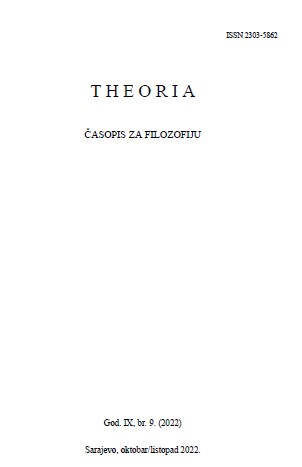DALEKO NAJBLIŽI. EVROPSKE INTEGRACIJE I LEGITIMITET EVROPE
BY FAR THE CLOSEST. EUROPEAN INTEGRATIONS AND THE LEGITIMACY OF EUROPE
Author(s): Vladimir Ž. MilisavljevićSubject(s): Political Philosophy, Social Philosophy, Contemporary Philosophy, EU-Approach / EU-Accession / EU-Development, Phenomenology, Peace and Conflict Studies
Published by: Filozofsko društvo THEORIA
Keywords: civil war; democracy; Europe; European Union; empire; legitimacy;
Summary/Abstract: The paper begins by considering the difficulties which are confronting the process of European integrations. The reluctance of the European Union to pursue its politics of enlargement, which has lately become visible in several vetoes blocking the start of accession negotiations, has provoked disappointment in the countries which are candidates for membership or on their way to becoming it. Among them are a few states of our region, which seem to be doomed to remain at the periphery of Europe. At the same time, the European Union is faced with the old problem of its own, the so-called democratic deficit. This paper seeks for a perspective in which these difficulties on both sides could be dealt with. It discusses three paradigmatic ways of representing Europe, which serve as a basis for different strategies of legitimizing the European Union. The first of them is idealist, since it elevates Europe to the rank of a philosophical concept which transcends the empirical definition of Europe as just one continent among others. This view reflects the representation of Europe as a unique, privileged part of the world and assumes that the rest of humanity should accept and pursue Europe's fundamental values. The second, more realistic conception envisages the European Union as an empire which is legitimized in terms of de facto arguments, such as the estimates of the costs of renouncing the Union, which would allegedly surpass those of its survival and continuation of the integration process, or by the need of preserving peace. A critical examination of these ways of legitimizing Europe reveals their factual unfoundedness and ideological character. The heritage of colonialism looms behind the idealist view of European supremacy, while the concept of the European Union as a sort of benevolent empire has paternalistic implications. The last part of the text, dealing with the problem of the European civil war (theorized by Carl Schmitt and Ernst Nolte), suggests that these shortcomings could be addressed in a conception of European politics which would not aim at pacifying or neutralizing conflicts but, on the contrary, at exposing the very conflictual component of politics. The example of ancient Greek democracy shows that preventing the civil war does not consist in eliminating all conflicts from politics but rather in their transposition to a superior level or their sublimation.
Journal: Theoria časopis za filozofiju
- Issue Year: IX/2022
- Issue No: 9
- Page Range: 91-111
- Page Count: 21
- Language: Serbian

